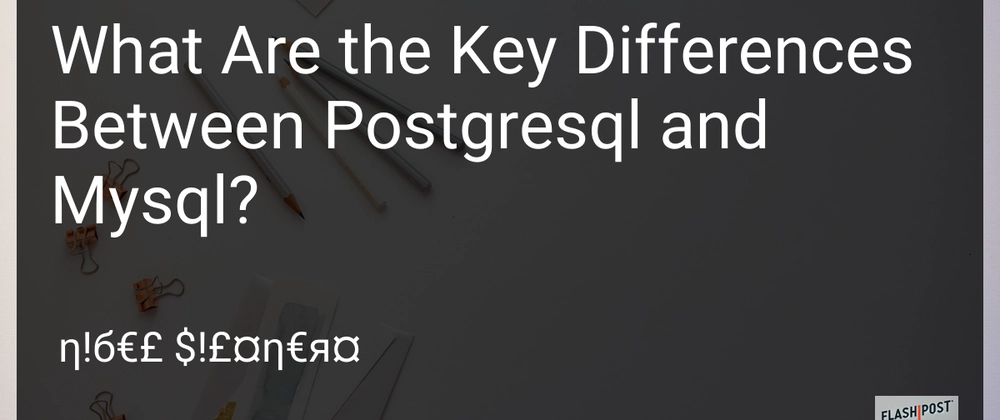When choosing a relational database management system, PostgreSQL and MySQL are often top contenders. Both are open-source, have a strong community, and boast a variety of features. However, understanding the key differences between PostgreSQL and MySQL can greatly impact your decision based on project requirements.
1. Licensing and Open Source Nature
PostgreSQL is renowned for its permissive open-source license. Released under the PostgreSQL License, a BSD-style license, it allows users to use, modify, and distribute the software freely for any purpose.
MySQL, on the other hand, is available under the GNU General Public License (GPL), with certain versions also available under proprietary licenses. This dual licensing can occasionally impact how MySQL can be used, particularly in commercial environments.
2. SQL Compliance and Data Integrity
PostgreSQL is known for its standards compliance. It closely adheres to ANSI SQL standards and offers advanced functionality such as Common Table Expressions (CTEs), window functions, and full-text search capabilities.
MySQL, while also adhering to standards, has historically been criticized for certain deviations from SQL standards. However, it is highly optimized for read-heavy operations and remains one of the fastest solutions for simple queries.
3. Architecture and Extensibility
PostgreSQL is designed for extensibility and standard compliance, which makes it an excellent choice for complex queries and data-driven applications. It supports advanced data types like JSON and XML, and allows users to create custom data types and functions. This makes PostgreSQL highly customizable and adaptable.
- Explore more about PostgreSQL database connections.
- Learn how to better manage your database's structure through PostgreSQL database organization.
MySQL, with its pluggable storage engine architecture, offers a simple and effective solution for various applications. Its strong points include high-speed transaction processing capabilities and robustness in handling large datasets.
4. Concurrency and Performance
PostgreSQL handles concurrency with its MVCC (Multi-Version Concurrency Control) model, which means that readers never block writers and vice versa. This results in high performance and consistent data access times under heavy load.
MySQL uses a different approach and provides several variants of the storage engine, like InnoDB, which also supports MVCC. MySQL shines in scenarios involving high-speed reads and is often chosen for web applications due to its speed and reliability.
For achieving optimal performance with PostgreSQL, consider indexing your dataset effectively. Find out more on indexing JSON data in PostgreSQL.
5. Replication and Clustering
PostgreSQL offers powerful features like streaming replication and logical replication which provide high availability and data redundancy. Its support for synchronous replication ensures zero data loss solutions.
MySQL also supports replication, offering both master-slave and master-master configurations, along with clustering solutions like MySQL Cluster, which are tailored for distributed environments and scale-out.
6. Community and Support
Both PostgreSQL and MySQL have vibrant, active communities that contribute to their development and maintenance. PostgreSQL's active community is known for its emphasis on stability and comprehensive documentation.
Similarly, MySQL's large user base and extensive third-party resources make it a viable choice, especially for newcomers to database management systems.
Conclusion
Choosing between PostgreSQL and MySQL largely depends on the specific needs of your project. If you require complex queries, extensive data type support, and ANSI compliance, PostgreSQL is the superior choice. If speed and simplicity in handling large read-heavy operations are critical, MySQL may be the way to go.
For additional information, you may explore PostgreSQL database recovery here, and for handling bulk data, refer to our guide on importing XML files into PostgreSQL.
By understanding the distinct capabilities of each system, you can make a more informed decision for your data management needs.



Top comments (0)